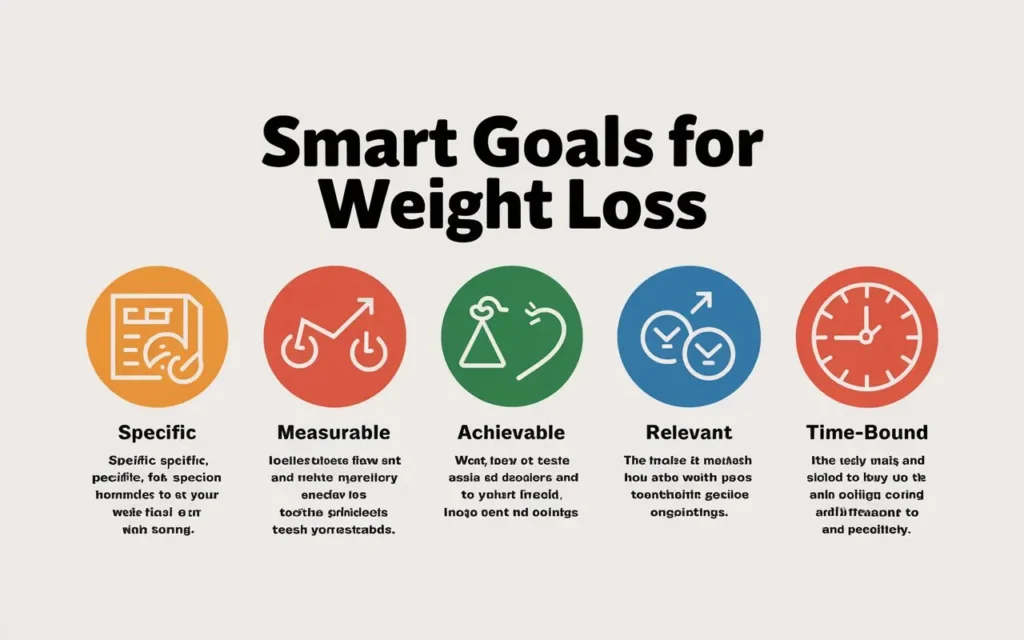The Psychology of Weight Loss Motivation: Unlocking Your Path to Success
Table of Contents
- Introduction
- Understanding the Psychology of Weight Loss Motivation
- Intrinsic vs. Extrinsic Motivation
- Setting Effective Goals for Weight Loss
- Overcoming Mental Barriers
- The Role of Mindfulness in Weight Loss Motivation
- Social Support and Its Impact
- Self-Compassion as a Motivational Tool
- Habit Formation and Weight Loss
- Visualization Techniques for Motivation
- Sustaining Long-Term Motivation
- Leveraging Technology for Weight Loss Motivation
- Conclusion
- References
1. Introduction
Psychology of weight loss motivation plays a crucial role in an individual’s journey towards achieving and maintaining a healthy weight. Understanding the mental and emotional factors that drive weight loss can significantly enhance the effectiveness of any weight management plan. This article explores various psychological aspects that influence motivation, providing actionable insights to help you stay committed and successful in your weight loss endeavors.
2. Understanding the Psychology of Weight Loss Motivation
The psychology of weight loss motivation is essential because it delves into the underlying reasons why individuals strive to lose weight and how these motivations can be harnessed to achieve lasting results. By exploring cognitive and emotional factors, we can better understand what drives successful weight loss and how to overcome obstacles along the way.
2.1 The Role of Self-Efficacy

Self-efficacy, or the belief in one’s ability to succeed, is a cornerstone of the psychology of weight loss motivation. Individuals with high self-efficacy are more likely to set challenging goals, persist in the face of setbacks, and ultimately achieve their weight loss objectives. Research by Bandura (1997) highlights that self-efficacy influences the choices people make, the effort they put forth, and their perseverance when facing difficulties.
To boost self-efficacy, it’s important to set realistic goals, celebrate small victories, and maintain a positive mindset. Engaging in activities that reinforce your belief in your capabilities, such as tracking progress or seeking feedback, can enhance self-efficacy and, consequently, motivation.
2.2 Intrinsic vs. Extrinsic Motivation
In the realm of psychology of weight loss motivation, understanding the difference between intrinsic and extrinsic motivation is key. Intrinsic motivation refers to engaging in behavior because it is inherently satisfying, while extrinsic motivation involves performing an activity to earn a reward or avoid punishment.
Both types of motivation play significant roles in weight loss. Intrinsic motivation might include the joy of feeling healthier or the satisfaction of achieving personal goals, whereas extrinsic motivation could involve social recognition, financial incentives, or the desire to fit into specific clothing. Balancing both types can lead to more sustainable weight loss efforts.
2.3 The Impact of Emotional Intelligence
Emotional intelligence, the ability to understand and manage your own emotions as well as recognize and influence the emotions of others, is a vital component of the psychology of weight loss motivation. High emotional intelligence can help individuals navigate the emotional challenges that often accompany weight loss, such as frustration, disappointment, or anxiety.
By developing emotional intelligence, individuals can better cope with setbacks, maintain motivation during difficult times, and build healthier relationships that support their weight loss journey. Techniques such as mindfulness, emotional regulation strategies, and effective communication can enhance emotional intelligence and, in turn, support weight loss goals.
3. Intrinsic vs. Extrinsic Motivation
The psychology of weight loss motivation distinguishes between intrinsic and extrinsic motivators, each playing a unique role in the weight loss journey. Recognizing which type of motivation drives you can help tailor strategies that align with your personal goals.
3.1 Intrinsic Motivation
- Personal satisfaction
- Desire for improved health
- Enhanced self-esteem
- Enjoyment of physical activity
- Personal growth and development
Intrinsic motivation tends to lead to more sustained and self-directed efforts. When weight loss is driven by personal values and desires, individuals are more likely to stick with their plans even when external rewards are not present.
3.2 Extrinsic Motivation
- External rewards (e.g., praise, prizes)
- Avoidance of negative outcomes (e.g., health issues)
- Social recognition
- Pressure from others
- Financial incentives
While extrinsic motivation can be effective in initiating weight loss, it may not always lead to long-term success. Over-reliance on external rewards can sometimes diminish intrinsic motivation, making it important to find a balance that supports both immediate and lasting goals.
3.3 Balancing Intrinsic and Extrinsic Motivation
The most effective weight loss strategies often incorporate both intrinsic and extrinsic motivators. For example, setting personal health goals (intrinsic) while also participating in a weight loss challenge with rewards (extrinsic) can enhance overall motivation. Understanding how these motivators interact allows individuals to create a more comprehensive and adaptable approach to weight loss.
4. Setting Effective Goals for Weight Loss

Effective goal setting is a fundamental aspect of the psychology of weight loss motivation. Clear, achievable goals provide direction and help maintain focus, enhancing the likelihood of success.
4.1 SMART Goals
Setting SMART (Specific, Measurable, Achievable, Relevant, Time-bound) goals is a proven strategy within the psychology of weight loss motivation. This framework ensures that your goals are well-defined and attainable.
- Specific: Clearly define what you want to achieve. Instead of saying “I want to lose weight,” specify “I want to lose 10 pounds in three months.”
- Measurable: Ensure that your progress can be tracked. Use tools like scales, measurements, or fitness apps to monitor your progress.
- Achievable: Set realistic goals that are within your reach. Losing 1-2 pounds per week is generally considered safe and attainable.
- Relevant: Align goals with your broader objectives. Ensure that your weight loss goals support your overall health and well-being.
- Time-bound: Set deadlines to create a sense of urgency. Having a timeline helps maintain motivation and accountability.
4.2 Long-Term vs. Short-Term Goals
Balancing long-term and short-term goals is crucial in the psychology of weight loss motivation. Short-term goals provide immediate targets that can boost motivation, while long-term goals ensure sustained effort towards overall health.
For instance, a short-term goal might be to exercise three times a week for a month, while a long-term goal could be to achieve and maintain a healthy weight over the course of a year. This combination helps maintain momentum and prevents burnout.
4.3 Adjusting Goals as Needed
Flexibility in goal setting is important for adapting to life’s changes and maintaining motivation. If a particular goal proves too challenging or no longer aligns with your priorities, it’s beneficial to reassess and adjust accordingly.
Regularly reviewing your goals and progress allows for necessary adjustments, ensuring that your weight loss journey remains realistic and attainable. This adaptability is a key component of the psychology of weight loss motivation.
5. Overcoming Mental Barriers
Overcoming mental barriers is a critical component of the psychology of weight loss motivation. Mental obstacles such as procrastination, negative self-talk, and lack of confidence can impede progress if not addressed effectively.
5.1 Identifying Common Mental Barriers
- Fear of failure
- Perfectionism
- Low self-esteem
- Procrastination
- Negative body image
- Stress and emotional eating
Recognizing these barriers is the first step towards overcoming them. Understanding the root causes of your mental obstacles can help you develop targeted strategies to address and mitigate their impact on your weight loss journey.
5.2 Strategies to Overcome Barriers
- Positive Affirmations: Replace negative thoughts with positive statements. Affirmations can rewire your mindset and reinforce your belief in your ability to succeed.
- Mindset Shifts: Focus on progress rather than perfection. Embracing a growth mindset helps you view challenges as opportunities for growth.
- Seek Support: Engage with friends, family, or a professional for encouragement. Support systems provide accountability and emotional reinforcement.
- Behavioral Activation: Take proactive steps to engage in activities that promote weight loss, such as exercising or meal prepping, even when you don’t feel motivated.
- Stress Management: Implement stress-reduction techniques like meditation, yoga, or deep breathing to prevent stress-related eating.
Implementing these strategies can help dismantle mental barriers, fostering a more resilient and motivated mindset conducive to weight loss.
5.3 Cognitive Behavioral Techniques
Cognitive Behavioral Therapy (CBT) techniques are effective tools within the psychology of weight loss motivation. CBT focuses on identifying and changing negative thought patterns that contribute to unhealthy behaviors.
Techniques such as thought records, cognitive restructuring, and behavioral experiments can help individuals challenge and modify the beliefs that hinder their weight loss efforts. By transforming negative thinking, CBT can enhance motivation and support sustainable behavior change.
6. The Role of Mindfulness in Weight Loss Motivation

Incorporating mindfulness into your weight loss journey can significantly enhance the psychology of weight loss motivation. Mindfulness practices promote self-awareness, reduce stress, and foster a deeper connection with your goals.
6.1 Benefits of Mindfulness
- Improved emotional regulation
- Enhanced focus and concentration
- Greater resilience against setbacks
- Increased enjoyment of food and exercise
- Reduction in stress-related eating
Mindfulness cultivates a present-focused awareness that can help individuals make more conscious and intentional choices related to eating and physical activity. This heightened awareness can prevent impulsive decisions and foster a more balanced approach to weight loss.
6.2 Mindfulness Techniques
- Mindful Eating: Pay attention to the flavors, textures, and sensations of your food. Eat slowly and savor each bite, which can lead to better digestion and satisfaction.
- Breathing Exercises: Use deep breathing to reduce stress and increase calmness. Techniques like diaphragmatic breathing or the 4-7-8 method can be effective.
- Meditation: Practice regular meditation to enhance overall mental well-being. Guided meditations focused on weight loss can reinforce your commitment and clarify your intentions.
- Body Scan: Perform a body scan to become aware of physical sensations and areas of tension. This practice can improve your connection with your body and promote relaxation.
- Mindful Movement: Engage in activities like yoga or tai chi that combine physical movement with mindfulness, enhancing both physical and mental health.
Incorporating these mindfulness techniques into your daily routine can bolster your motivation, reduce stress, and create a more harmonious relationship with your body and food.
6.3 Mindfulness and Emotional Eating
Emotional eating is a common challenge in weight loss, often triggered by stress, boredom, or negative emotions. Mindfulness can be a powerful tool in addressing emotional eating by fostering awareness of emotional triggers and promoting healthier coping mechanisms.
By recognizing the emotional cues that lead to overeating, individuals can develop strategies to address their emotions without resorting to food. This might include engaging in alternative activities, practicing relaxation techniques, or seeking support from others.
7. Social Support and Its Impact
Social support is a pivotal element in the psychology of weight loss motivation. Having a strong support system can provide encouragement, accountability, and a sense of community, all of which are essential for sustained weight loss success.
7.1 Types of Social Support
- Emotional Support: Providing empathy and encouragement.
- Instrumental Support: Offering practical assistance, such as meal preparation or workout sessions.
- Informational Support: Sharing advice, resources, and information related to weight loss.
- Appraisal Support: Providing feedback and affirmation to help individuals assess their progress and stay motivated.
Understanding the different types of social support can help individuals seek and cultivate the specific support they need at various stages of their weight loss journey.
7.2 Building a Supportive Network
- Join weight loss groups or communities: Participating in group activities can provide a sense of belonging and shared purpose.
- Engage with friends and family about your goals: Communicating your objectives can garner support and understanding from your close relationships.
- Seek professional guidance from coaches or therapists: Professionals can offer tailored advice and strategies to keep you on track.
- Utilize online forums and social media: Digital platforms can connect you with a broader community of individuals pursuing similar goals.
- Attend workshops and seminars: Educational events can provide both knowledge and networking opportunities.
Building a supportive network not only provides practical assistance but also reinforces your commitment through shared experiences and mutual encouragement.
7.3 The Role of Accountability Partners
Having an accountability partner can significantly enhance the psychology of weight loss motivation. An accountability partner is someone who shares similar goals and can help keep you on track by regularly checking in, providing feedback, and celebrating your successes.
Whether it’s a friend, family member, or fellow group member, having someone to hold you accountable can increase your commitment and reduce the likelihood of procrastination or giving up when challenges arise.
8. Self-Compassion as a Motivational Tool
Self-compassion is a powerful motivator within the psychology of weight loss motivation. Treating yourself with kindness and understanding can reduce self-criticism, increase resilience, and foster a positive mindset towards

.
8.1 Understanding Self-Compassion
- Self-Kindness: Being gentle with yourself during setbacks, rather than being harshly self-critical.
- Common Humanity: Recognizing that struggles and imperfections are part of the shared human experience.
- Mindfulness: Maintaining a balanced perspective on negative emotions, allowing them to be present without being overwhelmed.
Embracing self-compassion helps individuals navigate the inevitable challenges of weight loss with grace and persistence, rather than succumbing to feelings of inadequacy or defeat.
8.2 Cultivating Self-Compassion
- Practice positive self-talk: Replace negative statements with encouraging and supportive language.
- Embrace imperfections as part of your journey: Understand that setbacks are natural and do not define your overall progress.
- Engage in activities that promote self-care and well-being: Prioritize rest, relaxation, and activities that bring you joy.
- Reflect on your achievements: Regularly acknowledge and celebrate your successes, no matter how small.
- Seek professional support if needed: Therapists or counselors can provide guidance in developing self-compassion practices.
By fostering self-compassion, you create a supportive internal environment that encourages perseverance and positive behavior change, integral to the psychology of weight loss motivation.
8.3 Overcoming Self-Criticism
Self-criticism can be a significant barrier to weight loss motivation. Constantly judging yourself harshly for perceived failures can erode self-esteem and diminish your commitment to your goals.
To overcome self-criticism:
- Recognize and acknowledge your self-critical thoughts.
- Challenge the validity of these thoughts by assessing the evidence.
- Replace self-criticism with constructive feedback and encouragement.
- Focus on your efforts and progress rather than solely on outcomes.
Reducing self-criticism enhances your ability to stay motivated and resilient in the face of challenges.
9. Habit Formation and Weight Loss
Habit formation is integral to the psychology of weight loss motivation. Developing healthy habits can lead to lasting behavioral changes that support weight loss and overall well-being.
9.1 The Science of Habit Formation
Understanding how habits are formed can aid in creating sustainable weight loss strategies. Habits are formed through a loop of cue, routine, and reward, making it essential to identify and modify these components to establish new, healthy behaviors.
For example, if the cue is feeling stressed, the routine could shift from emotional eating to practicing deep breathing or going for a walk, and the reward might be the sense of relaxation achieved. This reshaping of the habit loop reinforces healthier responses to common triggers.
9.2 Building Healthy Habits
- Start Small: Begin with manageable changes to avoid overwhelm. Instead of overhauling your entire diet overnight, start by incorporating one healthy meal per day.
- Consistency: Regularly practice new behaviors to reinforce habits. Consistency helps in embedding these behaviors into your daily routine.
- Reward Yourself: Celebrate small victories to maintain motivation. Rewards can be non-food related, such as enjoying a favorite activity or purchasing a new workout outfit.
- Track Your Progress: Keeping a journal or using apps to monitor your habits can provide insight into your progress and areas needing improvement.
- Stay Patient: Habit formation takes time. Understanding that setbacks are part of the process can help maintain perseverance.
By systematically building and reinforcing healthy habits, individuals can create a stable foundation for sustained weight loss and improved overall health.
9.3 Breaking Unhealthy Habits
Just as building healthy habits is important, breaking unhealthy ones is equally crucial in the psychology of weight loss motivation. Identifying triggers and replacing detrimental behaviors with positive alternatives can facilitate this process.
Steps to break unhealthy habits include:
- Identify the trigger: Understand what prompts the unhealthy behavior.
- Find a substitute: Replace the negative habit with a positive one that satisfies the same need.
- Remove temptations: Make it easier to avoid the unhealthy behavior by eliminating cues.
- Seek support: Engage others to help reinforce your efforts to change.
- Be persistent: Understand that breaking habits takes time and effort, and setbacks are normal.
Successfully breaking unhealthy habits enhances your ability to adopt and maintain healthier behaviors essential for weight loss.
10. Visualization Techniques for Motivation

Visualization is a potent tool within the psychology of weight loss motivation. By mentally picturing your goals and the steps to achieve them, you can enhance focus, boost confidence, and increase the likelihood of success.
10.1 Benefits of Visualization
- Increased motivation and determination.
- Enhanced goal clarity and focus.
- Reduced anxiety and improved emotional resilience.
- Improved performance in physical activities.
- Strengthened commitment to weight loss goals.
Visualization helps in creating a clear mental image of your desired outcomes, making them feel more attainable and real. This mental rehearsal can activate similar neural pathways as actual physical practice, thereby reinforcing your commitment to your goals.
10.2 Effective Visualization Practices
- Set aside dedicated time for visualization exercises: Allocate a few minutes each day to focus solely on visualizing your weight loss journey and outcomes.
- Create a clear and detailed mental image of your goals: Imagine not just the end result, but also the process, including the steps you will take to achieve it.
- Incorporate all senses to make the visualization vivid and realistic: Engage sight, sound, touch, and even smell to make your mental images as detailed as possible.
- Use positive affirmations during visualization: Reinforce your beliefs in your ability to succeed by incorporating positive statements.
- Practice regularly: Consistency in visualization enhances its effectiveness and integrates it into your daily routine.
Regular visualization practice can reinforce your motivation, clarify your objectives, and strengthen your commitment to your weight loss goals.
10.3 Overcoming Mental Blocks with Visualization
Visualization can also be used to overcome mental blocks that hinder weight loss motivation. By envisioning yourself successfully navigating challenges and overcoming obstacles, you can build mental resilience and preparedness.
For example, if you anticipate difficulty in resisting unhealthy foods at social gatherings, visualize yourself making healthy choices confidently. This proactive mental rehearsal can reduce anxiety and increase your ability to handle real-life situations effectively.
11. Sustaining Long-Term Motivation
Sustaining long-term motivation is a critical aspect of the psychology of weight loss motivation. While initial motivation can kickstart the weight loss journey, maintaining it over time requires strategic planning and continuous effort.
11.1 Understanding the Phases of Motivation
Motivation often fluctuates through different phases. Understanding these phases can help you anticipate challenges and develop strategies to maintain motivation:
- Initiation Phase: The excitement of starting a new weight loss plan.
- Continuation Phase: Maintaining efforts despite challenges.
- Maintenance Phase: Sustaining weight loss and preventing relapse.
Each phase requires different motivational strategies to keep you engaged and committed.
11.2 Diversifying Your Strategies
Relying on a single motivational strategy can lead to burnout or decreased effectiveness over time. Diversifying your approaches can keep your motivation fresh and adaptable.
- Rotate between different forms of exercise to prevent monotony.
- Set new goals as old ones are achieved to maintain a sense of progress.
- Engage in various forms of self-care to support mental and emotional well-being.
- Explore different dietary approaches to find what works best for you.
By continually adapting and evolving your strategies, you can sustain motivation and navigate the inevitable ups and downs of the weight loss journey.
11.3 Celebrating Milestones
Celebrating milestones reinforces your progress and boosts motivation. Recognizing and rewarding your achievements, no matter how small, can enhance your sense of accomplishment and encourage continued effort.
Consider setting both short-term and long-term milestones, and plan meaningful rewards that align with your values and support your overall health goals. This positive reinforcement can sustain your motivation and make the weight loss journey more enjoyable.
11.4 Revisiting and Revising Goals
Regularly revisiting and revising your goals ensures they remain relevant and aligned with your evolving priorities and circumstances. This practice keeps your weight loss efforts dynamic and responsive to changes in your life.
As you achieve certain goals, set new ones to continue challenging yourself. If you encounter setbacks, adjust your goals to reflect your current situation, ensuring that they remain attainable and motivating.
12. Leveraging Technology for Weight Loss Motivation
In the modern era, technology offers numerous tools that can enhance the psychology of weight loss motivation. Leveraging these tools effectively can provide support, accountability, and resources to bolster your weight loss journey.
12.1 Fitness and Nutrition Apps
Fitness and nutrition apps can track your progress, set goals, and provide personalized recommendations. These apps often include features such as:
- Calorie tracking
- Workout logging
- Meal planning
- Progress visualization
- Community support forums
Using these apps can provide real-time feedback, keep you accountable, and offer insights into your habits and patterns, enhancing your motivation and guiding your weight loss efforts.
12.2 Wearable Technology
Wearable devices like fitness trackers and smartwatches monitor physical activity, heart rate, sleep patterns, and more. These devices can:
- Set daily activity goals
- Provide reminders to stay active
- Track progress over time
- Integrate with other health apps for comprehensive data analysis
The tangible feedback from wearable technology can reinforce positive behaviors and provide motivation to maintain or increase activity levels.
12.3 Online Communities and Social Media
Online communities and social media platforms offer opportunities to connect with others on similar weight loss journeys. These platforms can:
- Provide a sense of belonging and community
- Offer support and encouragement
- Share tips, recipes, and success stories
- Facilitate accountability through public commitments
Engaging with these communities can enhance motivation by providing social reinforcement and reducing feelings of isolation.
12.4 Virtual Coaching and Telehealth
Virtual coaching and telehealth services connect individuals with health professionals remotely. These services can offer:
- Personalized coaching sessions
- Nutritional guidance
- Behavioral therapy
- Progress tracking and feedback
Access to professional support through technology can provide tailored strategies, keep you accountable, and offer expert advice to enhance your weight loss motivation and success.
12.5 Gamification
Gamification incorporates game-like elements into weight loss programs to make the process more engaging and enjoyable. Features such as points, badges, leaderboards, and challenges can:
- Increase engagement and participation
- Provide incentives for achieving goals
- Foster a sense of competition and accomplishment
By making weight loss more interactive and fun, gamification can sustain motivation and encourage consistent effort.
13. Conclusion
The psychology of weight loss motivation encompasses a wide range of factors that influence an individual’s ability to achieve and maintain weight loss goals. By understanding and applying psychological principles such as goal setting, overcoming mental barriers, mindfulness, social support, self-compassion, habit formation, visualization, and leveraging technology, you can create a robust framework for sustained weight loss success.
Remember, weight loss is not just a physical journey but a mental one as well. Embracing the psychological aspects can empower you to stay motivated, overcome challenges, and ultimately achieve a healthier, happier you. Incorporate these strategies into your daily routine, remain flexible and patient with yourself, and seek support when needed. Your mindset is a powerful tool in your weight loss journey—harness it to unlock your full potential.
14. References
- American Psychological Association
- National Institutes of Health – Psychology of Weight Loss
- Healthline – Mindful Eating
- WebMD – Weight Loss Motivation Tips
- NCBI – The Role of Self-Efficacy in Weight Loss
- Psychology Today – Self-Compassion in Weight Loss
- SAGE Journals – Mindfulness and Weight Loss
- NCBI – Habit Formation and Weight Loss




